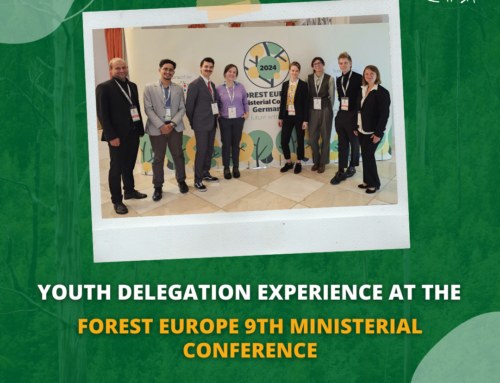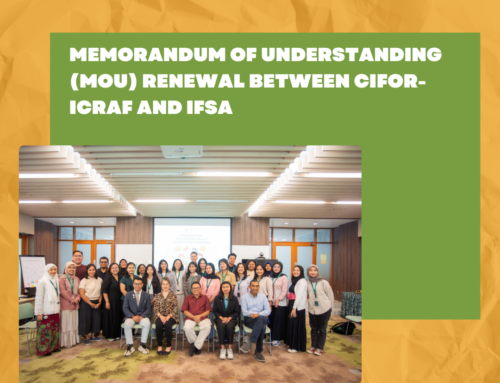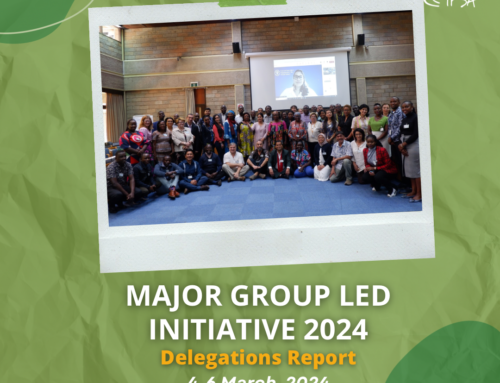Over a span of five days, 23 IFSA delegates participated at the 22nd Session of the African Forestry and Wildlife Commission (AFWC) under the theme “Forests and Wildlife: Africa’s diversity for shared prosperity and security, that was held in Skukuza, Republic of South Africa from 9th March to 13th March 2020 at the kind invitation of the Secretariat of the African Forestry and Wildlife Commission and the South African Government.
The commission is one of the six Regional Forestry Commissions established by FAO that meets every two years to provide a policy and technical forum for countries to discuss and address forest issues on a regional scale. Since FAO encourages wide participation of various stakeholders in forestry, including representatives of international, regional and sub-regional organizations that deal with forest-related issues in the region, IFSA’s presence at the event was mainly to provide perspective on forest education in the region and also to provide opportunities for its members to gain insights into developments in the regional forestry sector and to connect with professionals.
On the 8th of March, IFSA held a capacity building workshop titled “Young African Foresters Summit” in the AFWC which focused on improving the soft skills of young foresters through public speaking, pitching workshops and also discussing the challenges they face and opportunities which they can capitalize to transform the regions forestry sector whilst giving them insights on the work of the AFWC. During the AFWC, IFSA Led two side sessions which were mainly based on the state of forest education and youth participation in forest policies and decision making. The sessions were aimed at highlighting the gaps that exist in the current forestry curriculum and the competency needs of the labour market. The outcomes of the sessions were used to inform the High-Level Dialogue on Forest and Wildlife Education and Profession for Women and Youth in Africa.
Key outcomes of the Commission with respect to forest education: The commission took note of the need to revamp forestry and wildlife research in Africa and invited member countries to adapt and update forest education curriculum to meet the needs of the fast evolving sector. The commission also urged member countries to consider the lessons learnt, existing networks and collaborate with relevant stakeholders to implement relevant improvements in forest education and profession. Finally, the commission gave recognition to assess the existing knowledge and approaches on forestry and wildlife education and to consider the creation of a working group to support member countries in the review and structuring of the proposed changes in liaison with forestry education specialized organizations and networks in Africa.
“The Forestry sector is a dynamic one whose transformation is influenced by economic, social and technological drivers among others. There is a need to keep up with the Forest education curriculum to meet the needs of this dynamic sector. By providing young people the opportunity to give input to effect these changes was a giant leap to start transforming forest education as young people usually bear the brunt of less effective education curriculum” Phoebe Mwangi an IFSA delegate at the event.
Our sincerest gratitude to FAO and the IUFRO Grant through the Join Taskforce on Forest Education for strongly supporting the participation of the IFSA delegation at the event.
This article is authored by Amanubo Amos, the President of International Forestry Students Association. For any queries or need for the report on the specific IFSA led side sessions, please contact him at amos.amanubo@ifsa.net.





